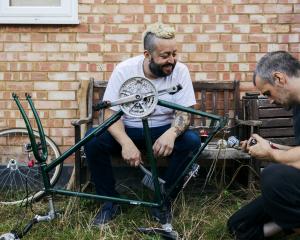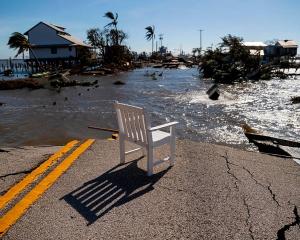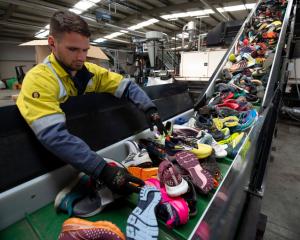

One of the key areas to build resilience is in our food systems. Local food systems, developed through entrepreneurial activity and SMEs (small and medium-sized enterprises), are important to supplement global systems.
Starting with the caveat that most of our businesses provide employment in our community and also contribute in many other ways, for example by providing that prize for a school raffle, sponsorship of local events and supporting local charities. Our SMEs in Aotearoa contribute significantly to our country — cumulatively both through economies (formal and informal) and our communities.
But the question I have is how are our local businesses looking after their locals — their customers and suppliers? Creating resilience in your business model means developing resilience across the value chain as well and many such value chains are global. As such, like it or not, by engaging locally most often we are also simultaneously being global - hence the term "glocal". By sipping that latte at your local cafe you are interconnected locally to your cafe and globally to a value chain that goes back to the growers.
Let’s look at a local example. Ocho chocolate was developed from relationships with cocoa growers in the Pacific. While it originated in Dunedin, key partnerships were created by founder Liz Rowe with growers in PNG and the Solomon Islands. By producing single-origin craft chocolate Ocho knows exactly where its raw materials are produced and it works with its suppliers to maintain supply for mutual benefit. When we buy a bar of Ocho, we buy chocolate that creates value not just for workers in Dunedin, but also those in the Pacific. Knowing that Ocho creates sustainable relationships and creates social value through the supply chain is an important part of the price we pay for each bar.
Another example: right now in Level 2 it is great to support your local coffee house by buying beans and a flat white. But the question we need to ask is how is your local coffee house supporting their value chain, "locals" or suppliers? And these suppliers might be what we call "glocal" as they are local in terms of their contribution to the outcomes of our coffee but at the same time global as the people growing the coffee live and work in another country. They are simultaneously immediate and far away. But they are essential to the operations of our local businesses and because of that we need to consider their resilience, too.
Coffee growing exists in the temperate zone globally. It does not grow everywhere yet it is drunk globally. Growers typically deal with "middle men" in the supply chain and as such do not always make as much money as they could. Coffee trees need replacing after a number of years and ensuring that growers have the resources to maintain their crop is essential for the sustainability of coffee. Trade Aid, a major supplier of fair trade green coffee beans, works directly with growers to build sustainability into the value chain through paying fair prices, developing long-term relationships and having a fund to help growers keep replanting.
If we are encouraging a buy-local campaign to build resilience in our local businesses, then I think we need to ask what our local businesses are doing to manage their value chains to build better resilience for the future.
At this time when we are being kind, let’s make sure that we extend that kindness to those whom we rely on to create our local businesses. By doing so we will build more resilient value chains and strengthen our (g)local businesses everywhere.
- Sara Walton is an associate professor of sustainability and business at the Otago Business School, University of Otago. Each week in this column, one of a panel of writers addresses issues of sustainability.
Comments
Perhaps the School of Business needs to organise delivery of the ODT? If it did, Associate Prof Sara Walton might be aware, like everyone else, that Ocho has actually been in dire financial straits for some time.
From what I have read online, most people believe the chocolate is seriously overpriced. While I'm sure it's very commendable to maintain sustainable relationships with growers and pay a living wage to your workers in New Zealand, these things presumably also contribute significantly to the cost of the final product.
I wonder who wins if the product is priced out of the market and the business goes into liquidation as a result? Is it 'kind' to tell the growers that you won't be buying any more cocoa at all as you've gone out of business? Is it 'kind' to go out of business when shareholders have invested their hard-earned money in you?
"Knowing that Ocho creates sustainable relationships and creates social value through the supply chain is an important part of the price we pay for each bar."
That's just the point isn't it? Nobody is buying the stuff.












